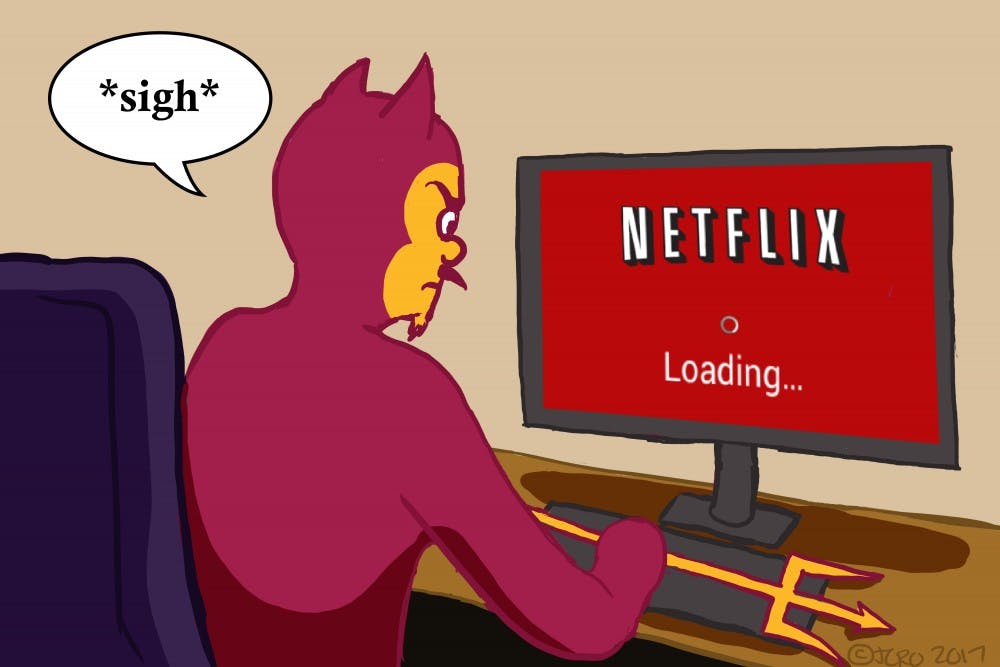Net neutrality is an integral part of our ability to have a free and open internet. The newly appointed FCC chair, Ajit Varadaraj Pai, recently called net neutrality a “mistake” and has repeatedly said he wants to dismantle the policies protecting the open internet.
Having policies that ensure internet competition is fair is incredibly important to our future. This should be especially important to students at ASU, as letting net neutrality end would be disastrous for innovation and would curb the ability of tech startups to succeed by potentially causing their internet to be much slower. In addition, it would also hurt free speech on the internet.
Net neutrality means that internet providers cannot intentionally raise or lower internet speed for certain companies. If cable companies were allowed to raise or lower internet speed rates as they please, then they would likely set premium rates that would give websites a faster speed for a raised price.
Internet speed is incredibly important to a website's success. A study in 2012 even found that people will often start to leave an online video if it fails to play in two seconds. Giving cable companies the ability to set different rates for internet speed would let them control which websites live and die.
Online companies such as Netflix and Facebook would probably be able to pay the cable companies a higher rate in order to get in to the internet’s fast lane. Smaller online companies or tech startups would have a hard time doing business, since it is unlikely they would be able to pay the rate in order to get in to the fast lane.
Allowing net neutrality to end would also be a major hit to our freedom of speech. Cable companies would effectively be able to destroy websites by lowering their speed. If there are sites putting out material that a cable company doesn’t agree with, they could simply lower their internet speed so that no one would visit their site.
This already happened several times before the net neutrality laws were put in place in 2015. During a dispute between Netflix and Comcast, a cable provider, Netflix’s speed dropped dramatically. Once Netflix gave in to their demands, its speed went back to normal levels, indicating that Comcast was able to pressure Netflix by lowering their speed.
Pai does not believe in net neutrality. His plans to dismantle net neutrality are cause for serious concern.
He claims that dismantling net neutrality will bring faster internet. This may be true, for large companies who agree with their cable companies, but for smaller businesses or for companies who have a disagreement with a cable provider, it will likely mean a very slow internet speed.
“(Net neutrality) is utterly critical if one wants an open and democratic internet,” ASU Foundation Professor of Law Robert Clinton said.
As a student at ASU, I recognize that I will likely be working with the internet my entire life. It worries me that the new FCC chairman could dismantle the restrictions on these cable companies, thus bringing an end to net neutrality.
If net neutrality ends, then cable companies will control the internet even more than they already do.
Reach the columnist at morganbwillis@gmail.com or follow @Morganwillis37 on Twitter.
Editor’s note: The opinions presented in this column are the author’s and do not imply any endorsement from The State Press or its editors.
Want to join the conversation? Send an email to opiniondesk.statepress@gmail.com. Keep letters under 300 words and be sure to include your university affiliation. Anonymity will not be granted.
Like The State Press on Facebook and follow @statepress on Twitter




